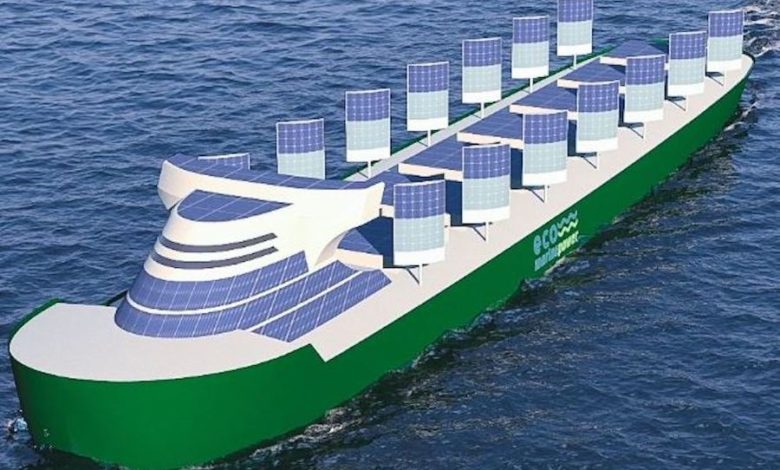Fat cows, foolish virgins, and the snows of yesteryear

The carriage of goods by sea is one of the things that Sir Richard Branson hasn’t tried (yet) so the title is not a reference to astronautics. I refer to two incidents in a well-known book, in one of which seven fat cows are eaten by seven thin cows; in the other, 10 virgins go to meet a bridegroom but whilst five of them have spare oil for their lamps stowed up their sleeves, the other five don’t, and the latter group don’t get to go to the party.
The third reference is to a poem by Francois Villon, 1431-63, (who seems to have behaved very much like the youth of today – burglary, knife crime, and repeated jail time) in which he laments beautiful women of the past, in a translation by Dante Gabriel Rossetti, who did none of those things, but who was not quite as good a poet.
“Years of fat cows” is Ancient Greek for booms in the freight market, which are followed as the night doth day by slumps, and just as the seven thin cows ate up the seven fat cows, so the periods of low freights last longer than the periods of high freights, and they commonly eat up all the reserves of cash that the prudent shipowner has laid by.
The most capital-intensive shipping solution always wins in the long run
What I am driving at is that the fat cows that the liner and dry bulk trades are enjoying at the moment are likely to be followed by the sort of events that we have not seen since the middle decades of the century before last, when wooden sailing ships were put out of business by iron and steel steamships.
If there are two simple lessons to be drawn from that event and from the replacement of the breakbulk liner by the containership in the last century, they are, first, that the most capital-intensive solution always wins in the long run, and second, that no shipowning business ever survives these great upheavals. We can’t see clearly into the future, but we know that a colossal upheaval is coming, quite soon.
The carriage of goods by sea is going to have to be done without recourse to oxidising any fossil hydrocarbons, just as it was in 1821. This is one of the changes that is coming our way, but there is another which is going to have just as big an effect on our way of life in the merchant shipping business. The Freedom of the Seas is coming to an end. At this point you may well be thinking of TS Eliot’s Four Quartets:
“You say I am repeating
Something I have said before. Shall I say it again? I shall say it again”
The days when we could avoid regulation and taxation are coming to an end; the world is shrinking fast. These two changes are going to change our business past recognition.
I said above that no shipowning business survived either of the last two great upheavals. None of the great enterprises of the wooden sailing ship era survived into the heyday of the steel steamship. The Dutch, French and British East India Companies, the Black Ball Line, even Thompson’s Aberdeen Line, all shrivelled away under the impact of the steel steamship and the telegraph cable. The Aberdeen Line made a very creditable effort, even building the first successful triple expansion steamship, but the shareholders were unwilling to borrow on the scale required to stay in the first division of liner shipping companies. It was really the same thing – reluctance to face the gigantic capital commitments – that did for the great liner shipping companies of the breakbulk era.
Shell, who are renowned for the care and the cash that they spend on forward planning, have said that they expect to be out of the hydrocarbon fuels business by 2050. That is 29 years away. Twenty-nine years ago, our idea of a big change was the post-panamax containership, recently introduced by American President Lines, a company founded in New York in 1848.
Peering into the not now distant future, we see that whether we use wind, or nuclear, or green hydrogen to drive ships across the oceans of the world, shipowning companies are going to have to make enormous investments, and shipowning companies are going to be in the public eye in a way that we have not been used to, which means that politics becomes important, which means that shipowners are going to get taxed.
There never was a Chinese curse “May you live in interesting times!”, but that is what we shall all be doing.

Good piece. I reminded me of the role of air travel in the demise of liner outfits, such as the companies in the Furness Group and P&O/BI.
The only forward looking owner I have read about investing directly in the future is Wallenius. Maybe there are others.
Thanks, David.
I wish Wallenius were sincere, but…
https://splash247.com/wallenius-in-for-up-to-six-car-carriers-at-cimc-raffles/
Mr Craig-Bennett:
I should have realized that you were the author here after the first paragraph. Insightful, experienced well thought out as usual.
Excellent writing and, more importantly, spot on with the winds of change. All accurate prophecy simply reads the writing on the wall, to mix in another reference to the well-known book.
Blinkered owners and managers will be weighed, and most will be found to be wanting, and their business given to the next empire who is ready to invest the capital, be carbon-zero, taxed and regulated.